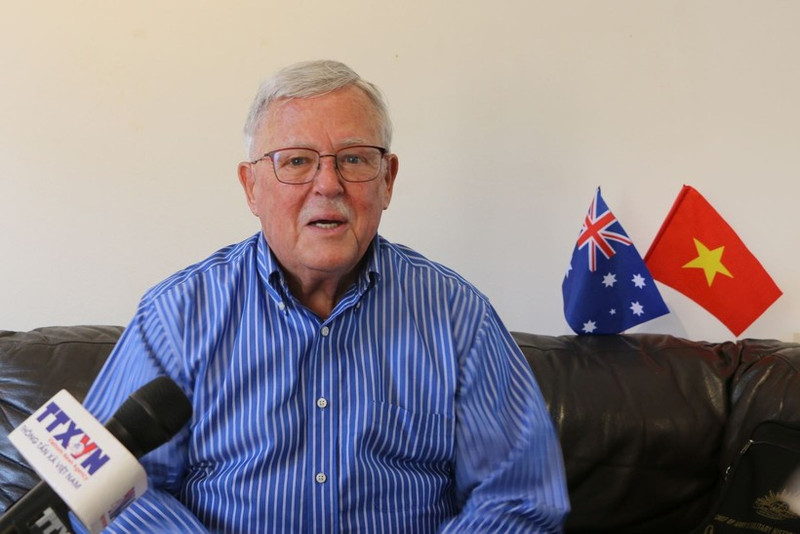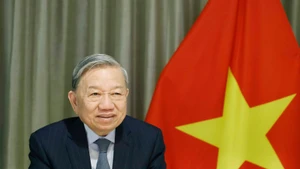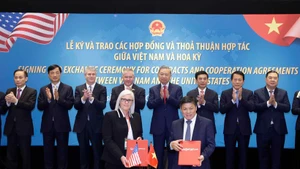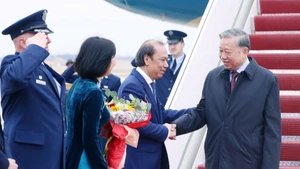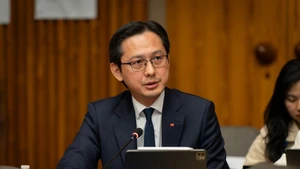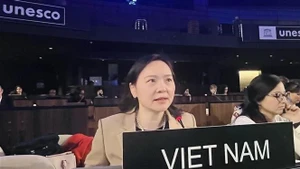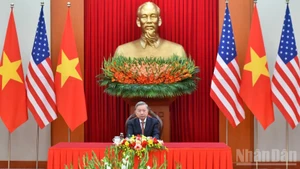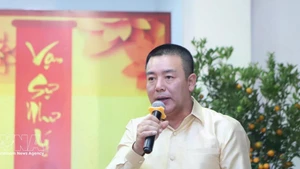Adopted by the United Nations General Assembly in December 2024, the signing ceremony of the convention under the theme “Countering Cybercrime – Sharing Responsibility – Securing Our Future” establishes a legal framework for international cooperation in combating cybercrime and enhancing the capacity of developing and vulnerable nations to address digital threats.
In an interview with the Viet Nam News Agency (VNA)'s resident correspondent in Sydney, Prof. Thayer described cybercrime as a rapidly escalating global threat. He noted that losses caused by cybercriminal activities had tripled over the past decade, from 3 trillion USD to 9 trillion USD, and are projected to reach 14 trillion USD by 2026 due to the boom of digital devices and the spread of artificial intelligence (AI).
The expert said cybercrime now surpasses natural disasters and drug trafficking in global economic damage, warning that AI-driven hacking groups can adapt to defensive systems, making attacks more destructive and harder to contain.
Prof. Thayer emphasised that the Ha Noi Convention is the first UN treaty in 20 years to address a transnational issue, underscoring its importance in today’s interconnected world.
He said the selection of Viet Nam as the host for the signing ceremony reflects its proactive and responsible approach to cybersecurity, noting that the Southeast Asian country currently ranks 17th among 194 nations worldwide in cybersecurity capacity, positioning it as a potential regional leader in this domain.
The expert said Viet Nam’s consistent multilateral diplomacy and leadership role within the Association of Southeast Asian Nations (ASEAN) reflect its strong commitment to addressing global challenges, citing its elections as a non-permanent member to the UN Security Council and the UN Human Rights Council twice as well as its strategic partnerships with four ASEAN members.
Prof. Thayer urged Viet Nam to use the occasion of the signing ceremony of the Ha Noi Convention to strengthen international cooperation and boost ASEAN’s cyber resilience. He called for closer collaboration in law enforcement, information sharing, and mutual legal assistance, from investigation and evidence collection to witness protection. He also proposed the creation of a regional cybersecurity response centre under ASEAN, building on the experience of the Interpol-led ASEAN Cybercrime Operations Centre established in 2015.
Sharing Australia’s experience, the professor said the country - among the world’s ten most targeted by cyberattacks - has long relied on the Australian Signals Directorate (ASD), a key intelligence agency responsible for signals intelligence, cybersecurity and military support. The Australian Cyber Security Centre (ACSC), operating under the ASD, plays a central role in protecting the nation from cyber threats, issuing alerts, guidance and rapid response to incidents.
The Australian government, he added, also prioritises partnerships with businesses and local authorities to strengthen defence and raise public awareness about cyber risks. Regular training, information campaigns and malware warnings help individuals and organisations recognise and respond swiftly to cyber threats, ensuring a resilient national cybersecurity ecosystem.
